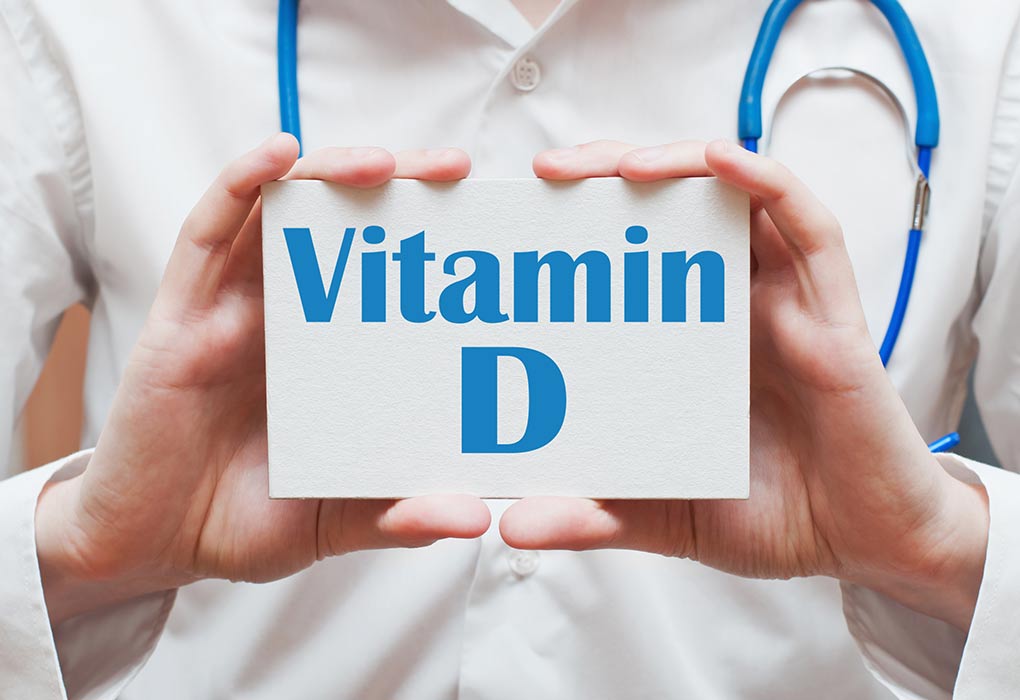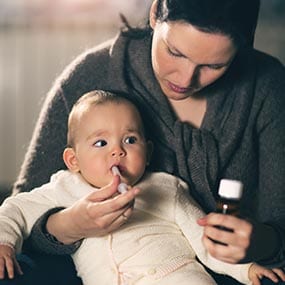Despite an unequivocal recommendation by the American Academy of Pediatrics to provide 400 IU of oral vitamin D daily beginning in the first days postpartum national studies conducted both before and after publication of these recommendations estimate that only 1 in 5 breastfed US infants achieves this goal. The daily recommended intake for vitamin D during lactation has been arbitrarily set at 400 IUd 10 microgd.
 Vitamin D For Breastfeeding Mothers Importance Risks Affects
Vitamin D For Breastfeeding Mothers Importance Risks Affects
To avoid developing a vitamin D deficiency the American Academy of Pediatrics recommends breastfed and partially breastfed infants be supplemented with 400 IU per day of vitamin D beginning in the first few days of life.

Breastfeeding vitamin d. In breastfeeding mothers with non-deficient vitamin D status taking 4000 IU daily of vitamin D average milk levels are approximately 130 IUL after 3 months of supplementation. This is mostly because people are not spending enough time in the sun these days. Increases Bone Strength Builds Bone Density Stimulates Bone Growth.
Breastfed babies from birth to one year of age should be given a daily supplement containing 85 to 10mcg of vitamin D as a precaution SACN 2016 Breastfeeding Mothers should also take a daily Vitamin D supplement of 10 µg per day Vitamin D deficiency in the UK is a consequence of our weather and the latitude at which we live. Vitamin D is an essential nutrient. Ad Clinically proven to increase your height naturally.
Buy Your Items Today. Your body uses the sun to make Vitamin D. Yes nursing mothers do need to supplement themselves or their babies with extra vitamin D.
Functions of vitamin D. This supplement should be cholecalciferol vitamin D3 because of superior absorption unless a vegetable. Vitamin D deficiency is common in Europe In Germany an estimated 561 of non-breastfeeding women have insufficient vitamin D status vitamin D requirement can be ensured by endogenous synthesis in the skin via ultraviolet B UVB radiation and therefore depends on numerous factors that affect the synthesis rate.
Normal levels of Vitamin D in breast milk are usually between 20 and 60 IU. Ad We Were So Excited About Vitamins We Ordered Too Much. Should I Take in Extra Vitamin D When Breastfeeding.
1 3 Both provider and parent compliance play a role when recommendations are. Ad We Were So Excited About Vitamins We Ordered Too Much. This RCT concluded that giving breastfeeding mothers 6400 IU vitamin D day and no additional supplement for the infant made sure the mother became sufficient with an average vitamin D level of around 60 ngml AND infants became sufficient with an average vitamin D level a little above 40 ngml.
If youre breastfeeding you should consider taking a vitamin D supplement containing 10mcg. It can be obtained both from diet and directly from sunlight. The Academy of Breastfeeding Medicine a global organisation recommends that The breastfeeding infant should receive vitamin D supplementation for a year beginning shortly after birth in doses of 1020 lgday 400800 IUday LOE IB.
An interview with Bruce Hollis PhD. This recommendation is irrelevant with respect to maintaining the nutritional vitamin D status of mothers and nursing infants especially among darkly pigmented individuals. Based on this reported average milk level an exclusively breastfed infant would receive 20 IUkg daily of vitamin D.
Its worth checking if youre. Vitamin D and Breastfeeding. Ad Clinically proven to increase your height naturally.
Increases Bone Strength Builds Bone Density Stimulates Bone Growth. Buy Your Items Today. Bruce Hollis is the lead author of a 2015 study that concluded that supplementing the mothers of exclusively breastfed babies with 6400 IU vitamin D per day is a safe and effective alternative to directly supplementing babies with 400 IU vitamin D per day.
Vitamin D deficiency is important especially in pregnant and breastfeeding mothers mainly because it is important for the growth and development of infants and growing children. The aim of this randomized controlled trial among 95 exclusively breastfeeding mother-infant pairs with high prevalence of vitamin D deficiency was to compare the effect of six-month post-partum vitamin D3maternal supplementation of 6000 IUday alone with maternal supplementation of 600 IUday plus infant supplementation of 400 IUday on the vitamin D status of breastfeeding infants in Doha Qatar. The breastfeeding infant should receive vitamin D supplementation shortly after birth in doses of 1020 μgday 400800 IUday LOE IB.
If your baby is only having breast milk no first infant formula top-ups you should give them a daily vitamin D supplement of 85 to 10mcg. Vitamin D supplementation should be continued unless the infant is weaned to at least 1 liter per day about 1 quart per day of vitamin Dfortified formula.
